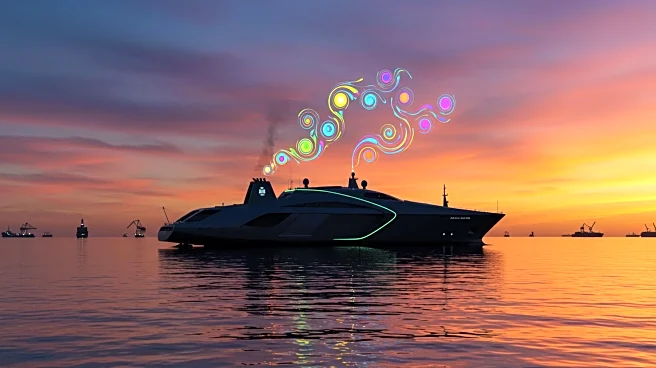What's Happening?
The Global Maritime Forum's Getting to Zero Coalition has released a report indicating significant progress in the adoption of methanol and ammonia as marine fuels. The report highlights that these fuels have matured considerably since 2020, with methanol moving from proof of concept to early scale, evidenced by over 60 methanol-capable vessels in operation and 300 more on order. Ammonia is approaching proof of concept, with successful engine tests and pilot vessels. The report emphasizes the need for substantial support to transition these fuels from pilot stages to maturity, aiming for rapid scaling by 2030 to meet industry decarbonization targets.
Why It's Important?
The adoption of methanol and ammonia as marine fuels is crucial for the shipping industry's decarbonization efforts. Methanol offers a relatively straightforward integration into existing systems, while ammonia promises significant emissions reductions. However, challenges such as the availability of green methanol and the need for ammonia bunkering infrastructure must be addressed. The report calls for policy incentives and funding to support early adopters and develop necessary infrastructure, highlighting the importance of harmonized fuel certification systems and aggregated fuel demand to drive investment.
What's Next?
The report suggests that achieving the industry's decarbonization goals will require targeted policy incentives and funding to close the cost gap for early adopters. It calls for the establishment of robust fuel certification systems and the aggregation of fuel demand to create investment cases for bunkering infrastructure. The Coalition emphasizes the need for CAPEX grants for bunkering vessels and infrastructure, urging action from the International Maritime Organization, national policymakers, and industry stakeholders to create enabling conditions for scaling zero-emission fuels.









